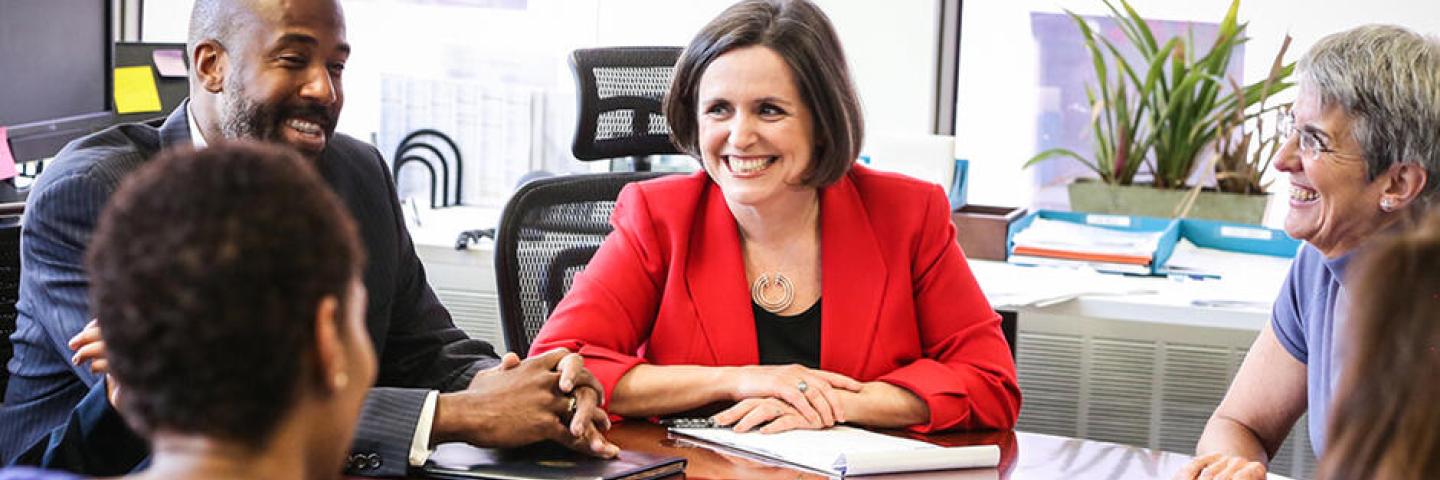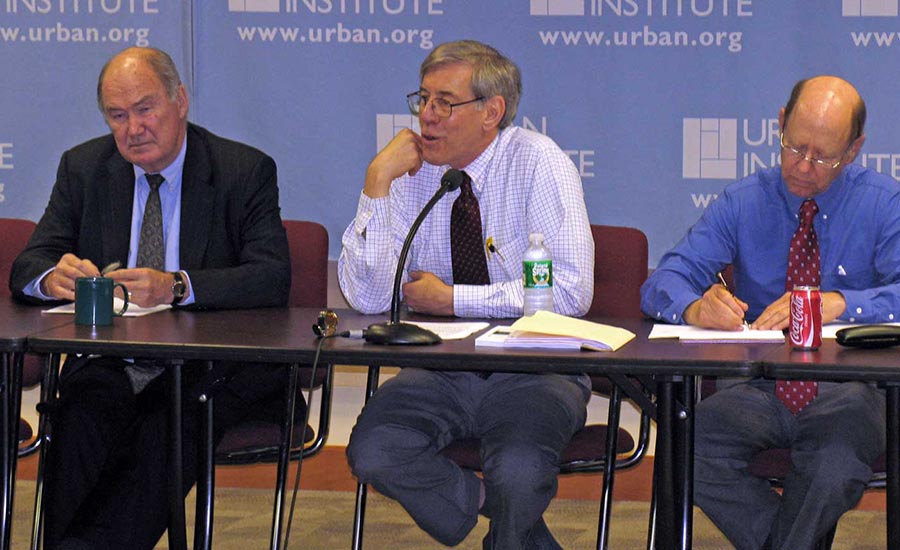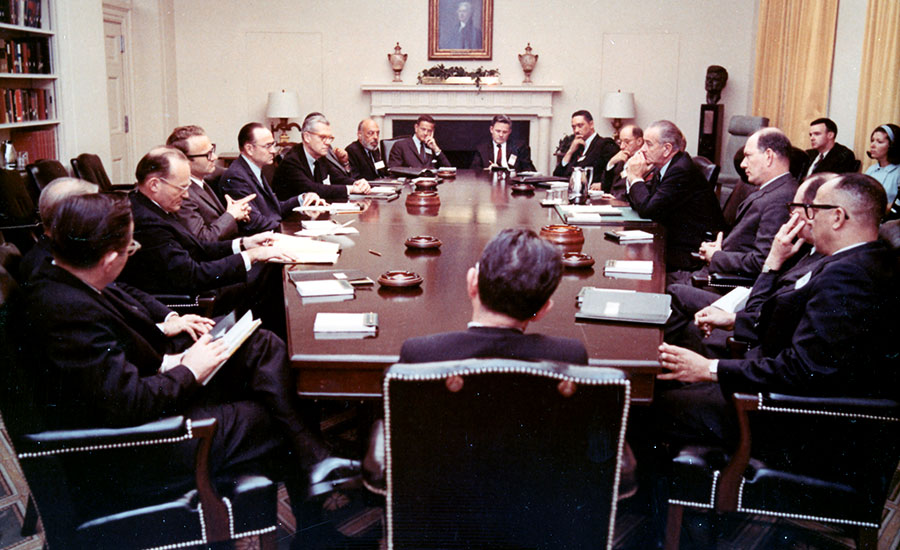
The Urban Institute relaunches our digital presence today with new features and powerful tools to access our research. It’s an extension of our ongoing work to modernize the Urban Institute’s identity and make our insights more readily available to the world. The site is built on decades of data, utilizing new tools to visualize our findings, put them in the hands of our users, and explore the questions they raise for policy debates.
The site is innovative; its design modern and fresh. But while the tools are new, the role we continue to play in elevating the public debate is exactly what our founders envisioned nearly five decades ago.
“The purpose of the organization was written into the charter… which was to improve the life of the American people.”
Bill Gorham
President Johnson addresses Urban's board of directors in April 1968.
The Founding of Urban Institute
The 1960s were a tumultuous period in American history. The Civil Rights Movement was gaining momentum in the South and beyond, but its victories were not without tragic losses. War raged abroad as unrest was building, sometimes erupting, in American cities. There were growing doubts as to whether President Lyndon B. Johnson’s vision of a Great Society would be realized—and whether its new federal programs were working as intended.
Urban was born of that moment, asked to answer some of the most pressing questions of its era.
Bill Gorham, then assistant secretary of Health, Education, and Welfare, met with an esteemed group of cabinet officials at the behest of President Johnson and, in 1968, was selected as the first president of the first institute of its kind. Johnson promised that this new organization would “give us the power through knowledge to help solve the problem that weighs heavily on the hearts and minds of all of us—the problem of the American city and its people.”
“Many young people come here as research assistants and leave to get their masters’ or PhD or find jobs in other places and then come back to Urban. It’s a vote for the quality of our environment. And a quality environment to a scholar or a person who cares about policy is a place where they can operate effectively. And that’s what I’m proudest of.”
Bill Gorham

Urban Institute President Robert Reischauer (center) speaks at the annual budget roundtable discussion in 2008.
Expanding Urban’s Portfolio
Bill served as Urban’s president for more than three decades, followed by esteemed health economist and former Congressional Budget Director Robert Reischauer. Both my predecessors expertly stewarded the organization through economic booms and busts, nine presidential administrations, and major policy reforms. They expanded Urban’s portfolio beyond urban issues and into such areas as health and tax policy; the well-being of families and children; and trends in work, earnings, and wealth building. Under their guidance, Urban built a staff of first-rate scholars in social and economic policy and established the organization’s reputation for rigorous, independent study.
Thanks to their leadership and vision, today’s Urban Institute is more relevant than ever.
Washington’s political gridlock has left Americans hungry for unbiased information. Beyond the beltway, demand for data and solutions is even greater: still reeling from the effects of a sluggish economy, local and state leaders face critical decisions with limited resources. Governors, mayors, hospital administrators, school superintendents, social workers, and community advocates—these are the people seeking evidence to turn into policies and practice. We share what we learn with them, and in turn, we bring their experiences and insights back to DC to evaluate whether policy programs are delivering on their promises.
“The challenge for the Institute…is to shed light, but not heat, on the debate and help decisionmakers and their staffs uncover the essential issues at stake and the facts and analysis that will lead to policies that are best for the nation as a whole.”
Robert D. Reischauer
Urban’s rich history puts it in a perfect position to cut through the cacophony of voices and deliver much-needed solutions. Our researchers don’t seek to promote an agenda—they seek answers, and they go where the data take them. There are no “official” positions at the Urban Institute. Rather, there are diverse voices of different perspectives, featured prominently throughout our new site, each making evidence-based recommendations rooted in research.
Whether you’re a scholar, a decisionmaker, a reporter, or an amateur wonk, our refreshed digital presence is designed to bring our knowledge and insights in a form that speaks to you. Daily, you’ll find new content, new features, and new insights on big questions of the day. We hope to leave you with evidence-based, smart, and evenhanded answers—to elevate debate, wherever it takes place.
